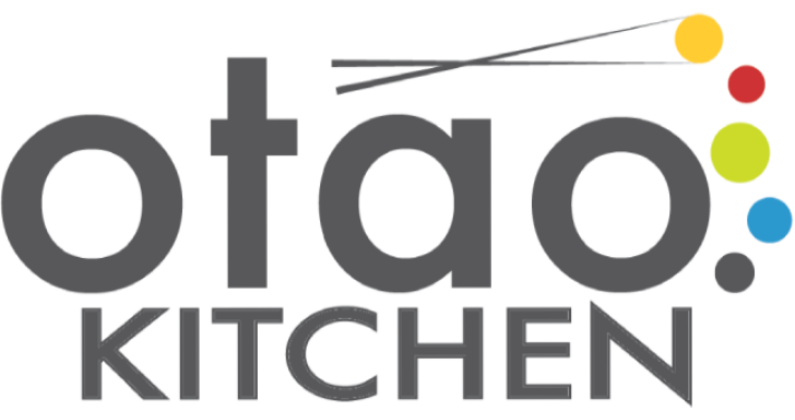This article delves into the dynamic realm of team building, offering a curated list of the "Top 10 Team Building Activities for a Stronger Workplace." From thought-provoking challenges to creative endeavors, each activity is meticulously designed to inspire collaboration, enhance communication, and cultivate a harmonious workplace culture.
Escape Room Challenge
An extremely thrilling activity, the Escape Room Challenge challenges participants to use their imagination in new ways to solve problems, deal with uncertainty, weigh risk vs reward, and work as a team. The idea that "we are in this together" and that "we sink or swim together" can also be effectively conveyed through gaming.
The activity can either be carried out as an engagement exercise exclusively or as an activity that culminates in a purposeful debriefing. A debriefing follows the program, during which participants relate their varied work contexts to the exercise and discuss their varied viewpoints, ideas, and experiences. At last, to raucous cheers from everyone, we present the top three teams.
Tips for holding escape room challenge
Clear communication: Make sure everyone is aware of the rules and goals prior to the start of the escape room challenge. Make sure you explain the activity's goal, the time given, and any safety precautions in detail. This lays the groundwork for a seamless and delightful encounter.
Diverse teams: Create varied teams to promote cooperation and the use of a range of abilities. Teamwork and problem-solving are improved when there is a diversity of ideas, personalities, and strengths. When forming teams, take into account the preferences and strengths of the members.
Choose a challenging theme: Choose an escape room theme that is both pleasant and hard in equal measure. The problems ought to provoke contemplation without being unduly intricate. To guarantee participation, take into account the participants' interests and preferences.
Include debriefing: Have a debriefing session following the escape room task. Talk about the encounter, point out instances of effective teamwork, and consider areas that could use better. Participants are encouraged to apply lessons learned in the workplace through this reflection, which fosters learning.
Outdoor Adventure Challenge
Outdoor adventure challenge focuses on how individuals participate in a variety of physical activities designed to challenge individuals physiologically, behaviourally and socially in diverse contexts and environments.
Activities like ropes courses, zip-lining, or hiking foster teamwork and trust. These challenges push individuals out of their comfort zones, promoting team bonding and overcoming obstacles together.
Tips for holding outdoor adventure challenge
Safety first: Prioritize participant safety by providing in-depth safety instructions prior to the start of the outdoor adventure challenge. Make certain that everyone taking part is aware of safety regulations, has the proper equipment, and knows what to do in an emergency.
Tailor challenges to fitness levels: When creating outdoor challenges, take the players' talents and fitness levels into account. Adapt activities to the varied fitness levels of the team by providing both physically demanding and less taxing options.
Provide clear instructions: To prevent confusion, clearly express the directions for each challenge. When needed, use illustrations or examples. Each challenge should be well understood by participants in terms of its objectives, tasks, and any special guidelines that apply.
Celebrate achievements: At the conclusion of the outdoor adventure challenge, recognize and celebrate the accomplishments of the team. Acknowledging accomplishments strengthens the sense of accomplishment and teamwork, whether it is finishing a challenging task or getting beyond a group challenge.
Scavenger Hunt
Scavenger hunts ideas are games that challenge participants to perform activities or find listed items. Examples of scavenger hunt ideas for adults include office scavenger hunts, travel scavenger hunts, beach scavenger hunts, and art scavenger hunts.
A classic team-building activity where teams follow clues and complete challenges to find hidden items. It promotes communication, problem-solving, and strategic thinking.
Tips for holding scavenger hunt
Clear instructions: Before the scavenger hunt starts, give participants precise instructions. Clearly state the guidelines, limitations, and any safety concerns. This guarantees that everyone is aware of the rules of the game and can play with confidence.
Theme and creativity: To add interest and originality to the scavenger hunt, consider giving it a theme. Whether the activity is recreational or team-building, a well-planned theme improves the whole experience and increases participant engagement.
Varied challenges: To accommodate a range of abilities and interests, include a variety of challenges. This could be puzzles, exercises, or hints that depend on a certain area. Different challenges promote teamwork and keep participants interested.
Safety first: Prioritize safety by choosing a safe location and ensuring that the challenges are suitable for all participants. Clearly communicate any safety guidelines and provide necessary information to ensure a secure and enjoyable scavenger hunt.
Team-building Workshops
Professional workshops focused on team dynamics, communication, and leadership skills. These sessions provide tools for improving collaboration and understanding within the team.
These programs typically involve a variety of exercises, activities, and games designed to improve communication, trust, cooperation, problem-solving, and conflict resolution. Facilitators can deliver team building courses and workshops in various formats, including online or in-person.
Tips for holding team-building workshops
Define clear objectives: Whether it's improving communication, fostering collaboration, or enhancing leadership skills, having clear goals ensures that the workshop is focused and beneficial for participants.
Interactive activities: Incorporate interactive and engaging activities that promote teamwork. From problem-solving exercises to role-playing scenarios, hands-on activities create a dynamic learning environment and encourage active participation.
Tailor to team's needs: Customize the workshop content to address the specific needs and challenges of the team. Consider conducting surveys or assessments beforehand to understand the team dynamics and tailor the workshop accordingly.
Include reflection and feedback: Encourage participants to share their insights, discuss what they've learned, and provide feedback on the effectiveness of the activities. This reflection process enhances the learning experience and promotes continuous improvement.
Cooking Class
Teams collaborate to prepare a meal under the guidance of a chef. It encourages creativity, communication, and teamwork, and ends with a shared meal everyone contributed to.
Using ingredients in new ways, combining unique flavors, and straying from a recipe require creativity. On some level, it may lead to learning from failure – however, it could also mean experimenting to find a new way of preparing a dish or altering its taste and making it better.
Tips for holding cooking class
Clear instruction: Give precise directions for every stage of the cooking process. Before participants start, go through the procedures to make sure they all understand them. This fosters a supportive learning atmosphere and increases self-assurance.
Choose accessible recipes: Choose recipes that people of different skill levels can follow. Think about your dietary choices and limitations. This makes it possible for everyone to engage fully and have fun throughout the culinary lesson.
Offer a variety of ingredients: Use a range of ingredients to highlight various flavors and cooking methods. This makes the lesson more exciting and gives the students the chance to experiment with different food options. Take into account dietary requirements.
Include a tasting session: Allow time for a tasting session so that participants can savor their hard work. Talk about the flavors, textures, and cooking methods used in each dish. This gives the culinary session a fun and satisfying component.
Otao Kitchen - Best choice for your cooking team building Melbourne
There are obstacles when starting or operating a food business: money, time, and locating the ideal kitchen. Otao Kitchen has everything you need. Our industrial kitchen is available for hiring and is flexible and reasonably priced to cater to the needs of food enterprises.
Otao Kitchen has everything you need
Flexible and affordable space
Kitchen tailored for your creations
Friendly food community
Affordable daily rate
Equipment that tits
Simple kitchen
Daily rate with minimum 2 days. We can sort out your specific equipment as extra fee.
Number of workers, 4 pax
Area 30m2 including some storage plus rear car park
Equipment: 1 full 2 door fridges, 1 full 2 door freezers, combi oven, wok, gas burner, bench top grill, sinks, mixer plus basic tools
You will need to bring the kitchen back to where you found it, or a cleaning fee will apply.
Discover Otao Kitchen - Where Culinary Dreams Take Flight. For more information, visit www.otaokitchen.com.au or contact us at contact@otaokitchen.com.au to book your culinary journey today.
As we conclude this exploration of innovative team-building endeavors, envision a workplace where challenges are faced collectively, successes are celebrated collaboratively, and each individual plays a vital role in the larger narrative of success. From escape room challenges that test problem-solving skills to outdoor adventures that strengthen bonds amidst nature's embrace, each activity offers a unique thread to fortify the tapestry of a robust team.
Keep in mind that the significance of these exercises rests not only in taking part but also in the long-term effects they have on communication, team dynamics, and the culture of the workplace as a whole. Accept these team-building exercises as stepping stones toward a workplace where cooperation is valued rather than as isolated occasions.
































.jpg)

